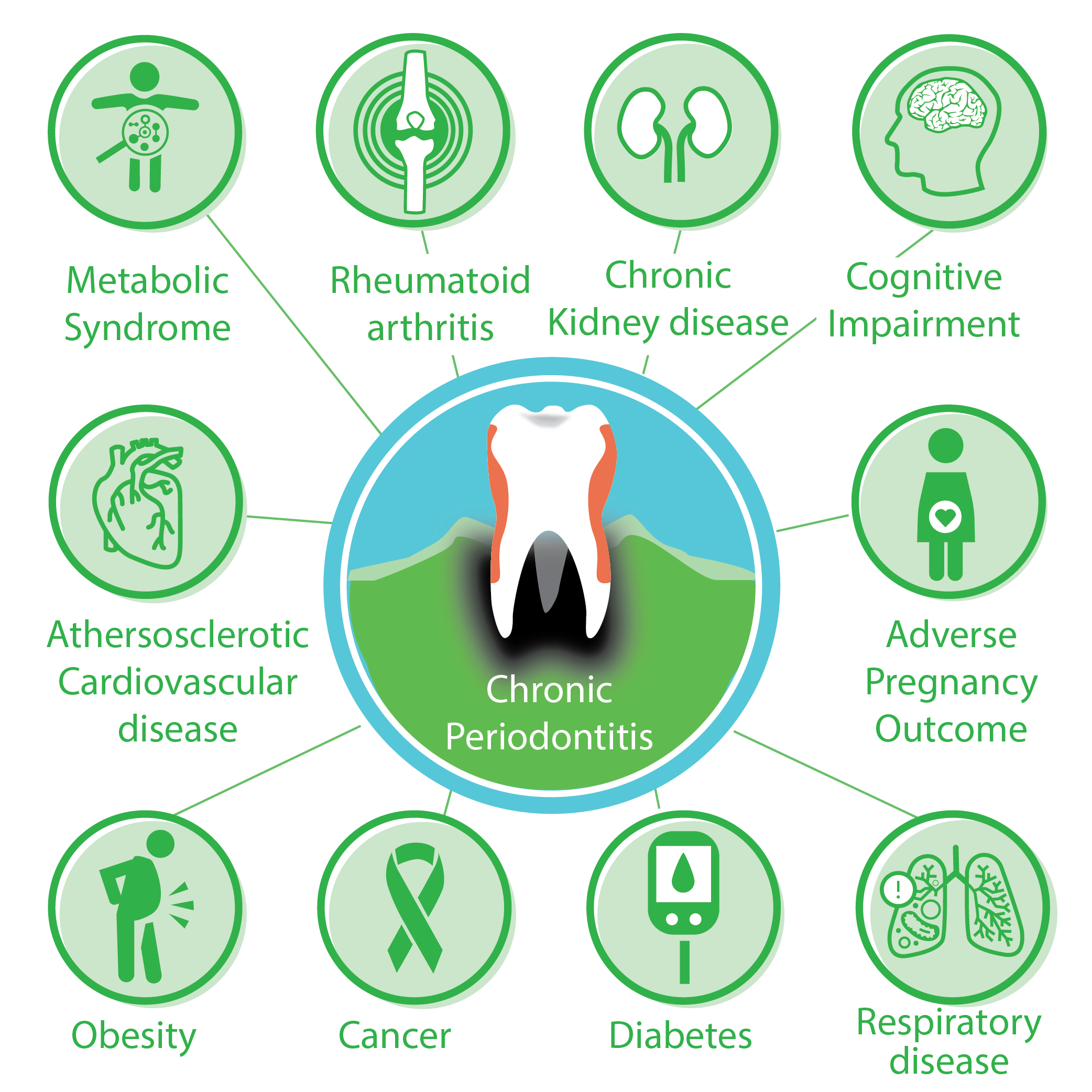
Good oral health is important in all stages of life. For young people, the tooth fairy and braces can be rites of passage. In adulthood, however, the importance of oral health seems to fall off the radar as people get busy with careers, growing families and other life developments or changes. Taking good care of your oral health at every phase of life can help you age healthier and avoid tooth decay or tooth loss.
The adult years between the ages of 30-50 bring the challenges of growing older. Genetics and lifestyle can contribute to the development of chronic diseases and many of the most common diseases can have connections to one’s oral health.

Diseases like arthritis, cardiovascular disease, stroke, kidney disease and most notably, diabetes, have distinct associations with poorer oral health and periodontal disease.

Ways to maintain your oral health in adulthood:
- Regular, preventive dental care. There is no substitute for regular oral health checkups and the early recognition of dental problems to avoid painful and costly dental treatment.
- Brush twice daily and floss. Your daily home oral health regimen is critical to good oral health.
- Drink fluoridated water to help strengthen your tooth enamel.
- Limit sugary beverages and excessive sweets in your diet that can contribute to tooth decay.
- Avoid or quit smoking and vaping. Research has shown both can increase the risk of oral diseases as well as cancer related to tobacco use.
- Oral health and overall health are connected. Changes to either may impact the other. Be aware of changes to your body.
- Some medications you take as you get older may lead to dry mouth. Ask your pharmacist / physician about the impact of prescribed medications to your oral health.
This information in this post is for general educational purposes only and does not warrant or represent any information as related to health as specifically appropriate for you. It is not intended to be medical advice or replace the relationship that you have with your health care providers. You should always seek medical advice on any diagnosis or treatment from a qualified health care provider. The information is provided “as is” without any representations or warranties, express or implied.
Subscribe now
Your address and personal information will be safely stored in our database. We do not share or sell this information with anyone. You can unsubscribe to this subscription at any time.






